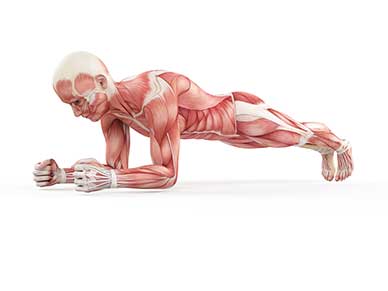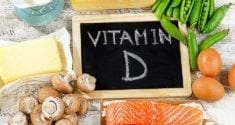Muscle Injuries in Athletes Could Be Caused by Low Vitamin D
Many people take vitamin D to encourage strong, healthy bones. New research on vitamin D and muscle function suggests that it may be a major contributor to building and maintaining healthy muscles as well.
Vitamin D is an important cofactor in metabolism, bone building and more. However, many people in northern latitudes suffer from a deficiency of this important nutrient. While vitamin D is present in a variety of foods, sunlight is needed to convert this to an active form of the vitamin.
What are some of the consequences of low vitamin D? Fatigue and sleepiness have both been linked to vitamin D deficiency. In addition, decreasing bone strength is more common in people who are low on this vitamin. According to new research on vitamin D and muscle injury, it may also be crucial in promoting muscle strength, healing and resilience as well.
Vitamin D and Muscle Strength
Vitamin D has long been suspected to play a role in building healthy muscle. Several studies have found a link between vitamin D and higher muscle mass. However, correlation is not always causation. In other words, researchers had no way of determining whether vitamin D helps to build muscle or if a third factor were at play. Vitamin D plays a role in a variety of biochemical reactions. It is also crucial in building strong bones and teeth. It reduces depression and keeps energy levels high. Because it is such a "multi-purpose" nutrient, it is difficult to tell when a deficiency is directly causing a physical problem. However, new research definitively points to low vitamin D as a direct cause of increased muscle injury.
Low Vitamin D in College Athletes
We tend to think of athletes as people who get plenty of time in the sunshine. However, over half of all college athletes have low vitamin D. A new study suggests that these athletes, who are otherwise in prime health, are more at risk of muscle injury as a result. Researchers looked at the rates of muscle injuries such as sprains and hernias in a population of college athletes. They also measured vitamin D levels in the blood of these young people. The resulting pattern was clear: Athletes with low vitamin D were more likely to experience an injury and especially more likely to have an injury that reduced their ability to play their chosen sport.
 What does this mean for people who are not high-performance athletes? You may be having trouble building muscle mass or suffering more soreness than usual because of not getting enough of this important vitamin. Even in people who had no other health effects, the lack of vitamin D manifested itself in a higher rate of muscle injuries. Taking vitamin D may be as important to building strong muscles as eating enough protein.
What does this mean for people who are not high-performance athletes? You may be having trouble building muscle mass or suffering more soreness than usual because of not getting enough of this important vitamin. Even in people who had no other health effects, the lack of vitamin D manifested itself in a higher rate of muscle injuries. Taking vitamin D may be as important to building strong muscles as eating enough protein.
Active and Inactive Vitamin D
This is not the only study to link vitamin D levels and muscle function. However, not all kinds of vitamin D are equal in their effects on human health. Vitamin D exists in several forms in the human body. Inactive and active vitamin D are two of these forms. Vitamin D that is ingested from foods must be activated in a complex system involving sunlight on bare skin, but also the kidneys and the liver. However, active vitamin D3 can be taken in supplements, thus bypassing this convoluted activation system.
People who have high levels of lean muscle mass have been found to have higher blood levels of active vitamin D. Active vitamin D is also linked to greater muscle strength. On the other hand, high levels of inactive vitamin D seem to be linked to higher levels of body fat. Many people who think they are getting enough vitamin D in their diet may need a supplement to increase levels of the active form.
Getting More Vitamin D in Your Diet
Vitamin D is only present in a small number of foods, and many of these are foods that most people do not routinely eat in large amounts. These include fatty fish oils and eggs. In addition, activating this dietary vitamin D requires an extensive process and ample exposure to sunlight. In an age of sunscreen, many people are deficient in active vitamin D, even if they actually enjoy cod liver oil. To ensure that there is always enough of the active form, an increasing number of people are taking a supplement with active vitamin D3 (cholecalciferol). Doctors once recommended doing this to increase energy and bone strength, but we now know that a great deal more is at risk.
Getting enough vitamins and nutrients is crucial to leading a long and healthy life, but research on vitamin D and muscle suggests that it is much more important than previously thought. If you are trying to gain more muscle but struggling, low levels of active vitamin D may be partially responsible. Consider taking a comprehensive supplement that contains vitamin D today to maintain the energy and strength that you need to enjoy optimal health.




